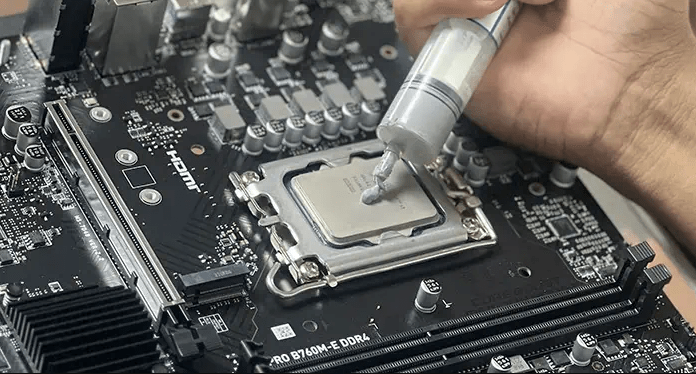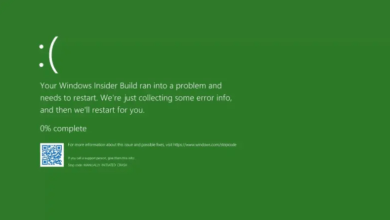Does Thermal Paste Expire? Best Information In 2024

Welcome to our informative blog post on the topic of does thermal paste expire! If you’ve ever wondered whether this essential component in your computer’s cooling system has a shelf life, you’re not alone. Thermal paste plays a crucial role in ensuring optimal heat transfer between your CPU or GPU. And its corresponding heat sink, keeping temperatures under control and preventing hardware damage.
In this article, we’ll delve into the world of thermal paste to answer the burning question: does it expire? We’ll explore what thermal paste is, why it’s important for your computer’s performance. And how to identify signs of expired or ineffective thermal paste. Additionally, we’ll provide valuable tips on proper storage techniques to extend its shelf life and offer guidance on selecting the best thermal paste for your needs. So let’s dive right in and uncover all there is to know about thermal paste expiration!
What Is Thermal Paste And Why Is It Important?
Thermal paste, otherwise called warm compound or warm oil. Is a crucial component in maintaining the optimal performance of electronic devices that generate heat. It is a viscous material that helps to improve the transfer of heat between the central processing unit (CPU) or graphics card and its heat sink.
When electronic components are in operation, they generate heat. This heat can build up quickly and cause damage if not properly dissipated. Thermal paste plays a vital role by filling in microscopic imperfections on the surface of the CPU or GPU. And creating better contact with the heat sink. This allows for efficient transfer of heat from the hot component to the cooling system.
Without thermal paste, there would be gaps between these surfaces which hinder effective heat dissipation. As a result, temperatures can rise rapidly leading to overheating and potential hardware failure. Thermal paste is essential because it promotes efficient cooling by ensuring maximum contact between heating elements and their respective coolers. By facilitating proper heat transfer, it helps prevent overheating issues that could potentially compromise device performance and longevity.
Does Thermal Paste Expire?
Thermal paste is an essential component when it comes to keeping your computer’s CPU cool and preventing overheating. But have you ever wondered Does Thermal Paste Expire? Well, the answer is yes! Thermal paste does have a shelf life. Over the long run, warm glue can dry out and lose its viability. This can lead to increased temperatures and reduced performance in your system. So, it’s important to be aware of the expiration date on your thermal paste.
But how do you know if your thermal paste has expired or become ineffective?There are a few signs to pay special attention to. If you notice that your CPU temperatures are higher than usual or if you’re experiencing random shutdowns or crashes, it could be a sign that your thermal paste needs to be replaced. To extend the shelf life of your thermal paste, proper storage is key. Keep it in a cool and dry place away from direct sunlight. Also, make sure the cap is tightly sealed after each use to prevent air exposure.
When choosing the best thermal paste for your system, there are a few factors to consider. Conductivity, viscosity, and application method all play a role in determining which type of thermal paste will work best for you. Checking the expiration date on your thermal paste and properly storing it can help ensure optimal performance for your computer’s cooling system. Don’t overlook this small but important component – keep an eye on that expiration date!
Signs Of Expired Or Ineffective Thermal Paste
Using expired or ineffective thermal paste can lead to poor heat transfer and ultimately result in overheating issues for your computer. It’s important to recognize the signs that indicate it’s time to replace your thermal paste.
One common sign is increased CPU temperatures. If you notice that your CPU is running hotter than usual, it could be due to dried-out or degraded thermal paste. Additionally, if you experience frequent system crashes or random shutdowns, this may also be a symptom of insufficient heat dissipation caused by expired thermal paste.
Another indicator is visible cracks or dryness in the thermal paste. Over time, as the compound ages, it can become brittle and lose its effectiveness. Inspect the application area carefully; any signs of discoloration or separation could mean that the thermal paste has reached its expiration date.
Furthermore, if you’ve recently applied new thermal paste but haven’t noticed any improvements in temperature regulation, there’s a possibility that the product was already expired when you purchased it.
To avoid these issues and ensure optimal performance from your cooling system, regular maintenance is key. Monitor your CPU temperatures regularly and consider reapplying fresh thermal paste every couple of years. Remember: prevention is better than cure! By staying vigilant and replacing expired or ineffective thermal paste promptly, you’ll protect your computer components from potential damage caused by excessive heat buildup.
How To Properly Store And Extend The Shelf Life Of Thermal Paste?
Properly storing and extending the shelf life of thermal paste is essential to ensure its efficacy when you need it most. Here are some tips to help you maintain your thermal paste in optimal condition. It’s crucial to store your thermal paste in a cool and dry place. Excessive heat or humidity can degrade the quality of the paste over time. Additionally, avoid exposing it to direct sunlight as UV rays can also have a negative impact. Always make sure the cap or lid of your thermal paste container is tightly sealed after each use. This will prevent air from entering and causing premature drying or hardening.
Furthermore, consider storing your thermal paste upright rather than laying it flat. This helps minimize any potential separation of components within the paste itself. When applying thermal paste onto a surface, be cautious not to use excessive amounts. Over-application can lead to excess oozing out during usage, which may affect heat transfer efficiency. Be mindful of expiration dates on your packaging. While many manufacturers provide recommendations for shelf life (typically around 2-3 years), it’s important to check for any specific guidelines provided by the brand you’re using. By following these simple storage practices and being aware of expiration dates, you can prolong the shelf life of your thermal paste and ensure optimal performance when needed!
Tips For Choosing The Best Thermal Paste
When it comes to choosing the best thermal paste, there are a few key factors to consider. First and foremost, you’ll want to look for a high-quality brand that has a good reputation in the industry. This will ensure that you’re getting a product that is reliable and effective. Next, consider the thermal conductivity of the paste. Thermal conductivity refers to how well the paste conducts heat away from your CPU or GPU. A higher thermal conductivity rating means better heat transfer, which can help keep your components cool and running smoothly.
Another important factor to consider is viscosity. Consistency alludes to how thick or dainty the glue is. Ideally, you’ll want a paste with medium viscosity as it allows for easy application without being too runny or too thick. Additionally, take into account any specific requirements of your CPU or GPU manufacturer when selecting thermal paste. Some manufacturers may have specific recommendations or requirements for the type of thermal paste they recommend using.
Read reviews and feedback from other users before making your final decision. This can give you valuable insights into the performance and reliability of different brands and types of thermal pastes. By considering these tips when choosing thermal paste, you can ensure that you’re selecting a product that will effectively transfer heat away from your components and prolong their lifespan!
Conclusion
Importance of Checking Expiration Dates and Proper Maintenance for Optimal Performance. Ensuring that your thermal paste is in good condition and not expired is essential for maintaining optimal performance of your computer. Over time, thermal paste can deteriorate or dry out, leading to decreased heat transfer efficiency and potentially causing overheating issues.
By regularly checking the expiration dates on your thermal paste tubes, you can avoid using products that may have lost their effectiveness over time. Expired thermal paste may not provide the necessary conductivity between the CPU or GPU and the heatsink, resulting in higher temperatures and reduced performance.
Proper maintenance also plays a crucial role in maximizing the lifespan of your thermal paste. When applying it onto your processor or graphics card, make sure to clean off any old residue thoroughly before reapplying a fresh layer. This will ensure better adhesion and improve overall cooling capabilities.
Storing your thermal paste correctly is equally important. Keep it sealed tightly when not in use to prevent air exposure which could lead to drying out. Additionally, store it in a cool and dry place away from direct sunlight or extreme temperatures as these conditions can accelerate degradation.
To choose the best thermal paste for your needs, consider factors such as its composition (silicone-based vs metal-based), application method (syringe vs spreader), desired longevity, and compatibility with different hardware components.
Thermal paste does indeed expire! It may lose its effectiveness over time due to drying out or chemical decomposition. To maintain optimal performance, always check expiration dates before using any new tube of thermal compound. Regularly inspecting old applications for signs of deterioration is also recommended.
Remember that proper storage techniques play an important role in extending shelf life; keep it sealed tightly when unused and store it under appropriate environmental conditions. By following these guidelines along with thorough cleaning during reapplication processes, you’ll enhance heat transfer efficiency while minimizing potential heating problems within your system. Don’t overlook the importance of thermal paste in your computer’s cooling system.




